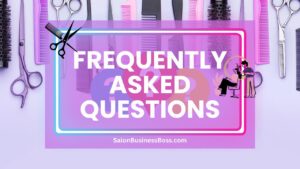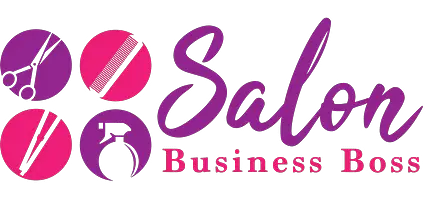Creating a successful business plan for your hair products is like mapping out a journey. It’s not just about having great products but understanding the landscape you’re navigating.
A successful business plan for hair products includes market analysis, competitive positioning, and a robust marketing strategy. It should outline product uniqueness, target audience, financial projections, and operational details to attract investors and guide business growth.
In this article, we’ll break down the key elements using everyday words to make sure your plan is practical and effective.
1. Market Analysis: Navigating the Hair Care Scene

To start, dive into the world of hair care. Look around, observe the trends, and get a feel for what people want. Think of it like understanding the weather before planning a trip – you want to be prepared for what’s coming. Identify what’s popular, what’s missing, and where your products can find their niche.
Consider the variety of hair types and textures out there. Hair care isn’t a one-size-fits-all situation. Take note of the problems people face with their hair – from dryness to frizz – and figure out how your products can provide solutions.
Read more about: Building Bridges, Not Just Braids: Client Loyalty Unveiled
2. Unique Selling Proposition (USP): Standing Out in the Crowd
Your Unique Selling Proposition (USP) is what makes your hair products special. Think of it as the secret ingredient in your grandma’s recipe that everyone loves. It could be the natural ingredients you use, the specific benefits your products offer, or even the way you’ve built a brand that people trust.
Define what sets your hair products apart in a way that your neighbor can understand. Maybe it’s the organic oils that make your conditioner extra nourishing, or the fact that your brand supports sustainability. Whatever it is, make it clear and relatable.
3. Target Audience: Who’s Your Hair Hero?
Picture your ideal customer – the person who sees your hair products and thinks, “This is exactly what I’ve been looking for!” Define your target audience in simple terms. Consider their age, style, and what they look for in hair care products.
For example, if you’re offering natural, gentle products, your audience might be health-conscious individuals who appreciate simplicity. Knowing your audience helps you tailor your products and marketing to suit their preferences.
4. Marketing Strategy: Spreading the Word, Online and Offline
Now, let’s talk about getting the word out. Your marketing strategy is like telling everyone about your favorite local café. You want to use channels that reach your audience. If your customers are active on social media, that’s your café’s hotspot.
Outline how you’ll promote your products in a way that feels authentic. Share your story, showcase real people using your products, and engage with your audience. Consider collaborations with influencers or local salons – think of it as inviting friends to your café.
Don’t forget the offline world. Maybe you distribute pamphlets at local events or collaborate with nearby businesses. Make your presence felt in the neighborhood, just like your favorite café becomes a hub for the community.
5. Financial Projections: Budgeting for the Journey Ahead
Financial projections might sound like dealing with a crystal ball, but it’s more like planning your monthly expenses. Start by estimating how much you’ll sell your products for and calculate your production costs. Consider factors like packaging, labeling, and any third-party services you might need.
Be realistic about your sales forecast. It’s okay to start small – think of it like saving for a rainy day. Outline your expected expenses, from raw materials to marketing costs, and protect your profit margins. This helps you see if your journey is financially sustainable.
6. Operations Plan: Making the Journey Smooth
Your operations plan is like planning your road trip. You need to know how to get from point A (production) to point B (customer hands) smoothly. Detail the steps involved in producing your hair products, from sourcing ingredients to the actual manufacturing.
Consider your distribution strategy – how will your products reach customers? Will you sell online, in stores, or both? Think about the supply chain logistics, like how you’ll manage inventory and fulfill orders. This is the roadmap for making sure your products reach your customers seamlessly.
Summary
In the end, a well-crafted business plan is your trusty GPS for the hair product journey. It keeps you on the right track, helps you navigate obstacles, and ensures you reach your destination. Think of it as your travel companion, guiding you as you build and grow your hair care business.
Frequently Asked Questions

1. Why is a market analysis important for my hair product business plan?
Understanding the hair care market helps identify trends and tailor your products to meet customer needs, ensuring a strategic and informed approach for success.
2. How do I determine my Unique Selling Proposition (USP) for hair products?
Define what makes your products special – whether it’s natural ingredients, unique benefits, or a distinctive brand story. This sets your products apart and attracts customers.
3. Why should I focus on a target audience in my business plan?
Defining your ideal customer helps tailor products and marketing efforts, ensuring a more effective and relatable approach that resonates with specific age groups, preferences, and buying behaviors.
To learn more on how to start you own salon checkout my startup documents here.
The information provided by SalonBusinessBoss.com (“The Site”) is for general informational purposes only. All information on the Site is provided in good faith, however, we make no representation or warranty of any kind, express or implied, regarding the accuracy, adequacy, validity, reliability, availability or completeness of any information on the Site. Under no circumstance shall we have any liability to you for any loss or damage of any kind incurred as a result of the use of the Site or Reliance on any information provided on the Site. Your use of the Site and your reliance on any information on the Site is solely at your own risk. This blog post is for educational purposes only and does not constitute legal advice. Please consult a legal expert to address your specific needs. Terms and Conditions. (https://salonbusinessboss.com/terms-conditions/)

About the author. Entrepreneur and Salon Business Fan.
Hi! I am Shawn and I am a happy individual who happens to be an entrepreneur. I have owned several types of businesses in my life from a coffee shop to an import and export business to an online review business plus a few more and now I create online salon business resources for those interested in starting new ventures. It’s demanding work but I love it. I do it for those passionate about their business and their goals. That’s why when I meet a salon business owner, I see myself. I know how hard the struggle is to retain clients, find good employees and keep the business growing all while trying to stay competitive.
That’s why I created Salon Business Boss: I want to help salon business owners like you build a thriving business that brings you endless joy and supports your ideal lifestyle.

